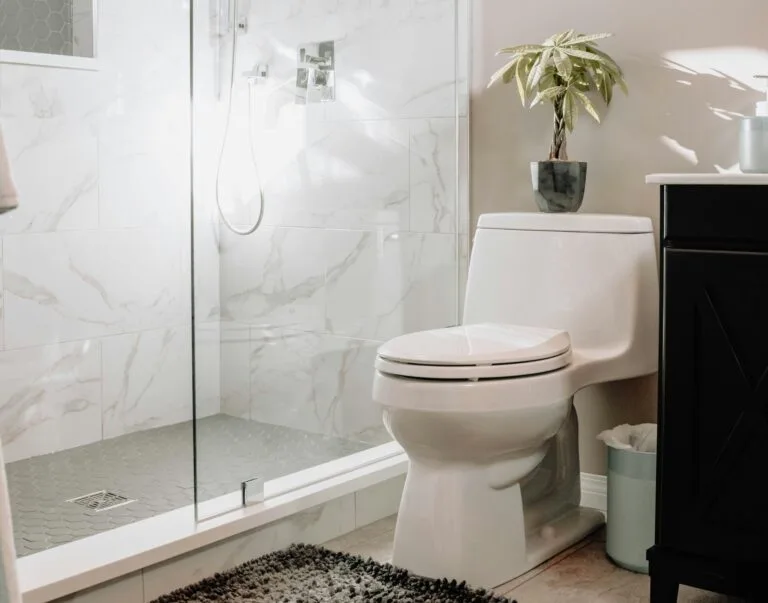When you’re in the market for a new home, it’s easy to get swept up in features like the layout, kitchen updates, and overall curb appeal. However, one often overlooked area is the plumbing system. A thorough inspection of the home’s plumbing can save you from unexpected, costly repairs down the road. Below is a plumbing checklist to guide you through the home-buying process.
1. Inspect the Pipes
- Pipe Material: Ask about the type of pipes used throughout the house (copper, PEX, PVC, galvanized steel, etc.). Some older materials like galvanized steel can corrode and cause low water pressure or discoloration.
- Visible Damage or Corrosion: Look for signs of rust, corrosion, or leaks on exposed pipes (usually found in basements, crawl spaces, or utility rooms).
- Age of the Plumbing System: Even the best materials can degrade over time. Older systems may need replacing, so factor potential updates into your budget.
2. Check Water Pressure and Flow
- Test Multiple Fixtures: Turn on faucets, showers, and flush toilets to see if there’s consistent water pressure. Low pressure might indicate clogged pipes or a failing pressure regulator.
- Look for Spurting or Spurts of Air: Water that “spits” out can suggest air in the pipes, often caused by leaks or other issues in the supply line.
3. Evaluate the Water Heater
- Check the Age and Condition: Most water heaters last about 8-12 years. An older model may be less efficient and may need replacement sooner rather than later.
- Look for Signs of Rust or Leaks: Inspect the tank (or the connections on tankless units) for corrosion or moisture.
- Assess the Capacity: Ensure the water heater’s size is sufficient for the home’s number of occupants and bathrooms.
4. Examine the Sewer and Drainage
- Ask About Previous Sewer Line Inspections: If the seller doesn’t have records, consider getting a camera inspection done—especially in older neighborhoods where tree roots can invade sewer lines.
- Check for Slow Drains: Run water in sinks, tubs, and showers to confirm that everything drains properly. Gurgling sounds or slow drains could point to blockages or ventilation problems.
5. Look Out for Leaks
- Check Around Appliances: Inspect beneath sinks, around dishwashers, washing machines, and refrigerators with water lines. If you see water stains, warped wood, or mold, there may be an ongoing leak.
- Inspect Toilets and Faucets: Even a small leak can lead to higher water bills and potential water damage. Look for dripping faucets and water pooling at toilet bases.
6. Assess Shut-Off Valves
- Main Shut-Off Location: Locate the main water shut-off valve and ensure it functions properly. In Denver homes, this is often in the basement or utility area.
- Individual Fixture Valves: Confirm that fixtures (toilets, sinks, etc.) have their own functioning shut-off valves for easier maintenance.
7. Ask About Water Quality
- Water Testing: Depending on the area, ask if the water quality has been tested for contaminants like lead or hard minerals. If necessary, consider a filtration or water softening system.
- Signs of Hard Water: Check faucets and showerheads for white, chalky buildup. Hard water can lead to scale deposits in pipes and reduce appliance lifespan.
8. Consider Future Upgrades
- Energy-Efficient Fixtures: If the home doesn’t have low-flow toilets or faucet aerators, you can upgrade later for cost savings and environmental benefits.
- Smart Plumbing Technology: Leak detection sensors and smart water monitors can help you catch problems early.
9. Consult a Professional Inspection
While you can do a preliminary check, nothing beats a professional plumber’s assessment. A licensed plumber can:
- Perform a detailed inspection using specialized tools.
- Identify hidden issues like slow leaks, failing pressure regulators, or compromised sewer lines.
- Provide repair or replacement estimates to help you negotiate the purchase price or prepare for future repairs.
Why Choose Summit Plumbing in Denver
At Summit Plumbing, we understand the unique challenges of Colorado’s climate and housing stock. Our skilled team knows what to look for when evaluating plumbing systems in Denver homes—whether it’s older Victorian-era properties or newly built modern houses. We can provide a comprehensive inspection and help you make an informed decision before you buy.

